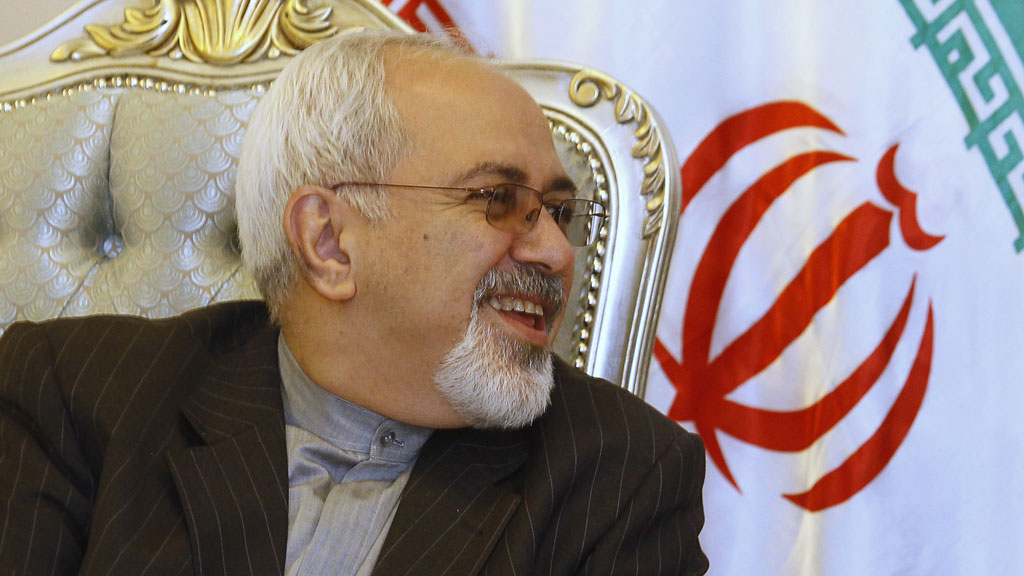Time for a 'grand bargain' between United States and Iran
Earlier this month Javad Zarif, Iran‘s new foreign minister, joined Twitter. On his first day of tweeting, he wished Jews a happy Jewish new year. This happened to be noticed by Christine Pelosi, the daughter of Nancy Pelosi, the most powerful Democrat in the US House of Representatives. Christine is married to an American Jew. She then responded to the Iranian foreign minister’s tweet and challenged him to end his country’s denial of the holocaust.

The Iranian’s tweet in reply suggested that a new era in Iranian-American relations really was about to begin: “Iran never denied it,” Mr Zarif, pictured above, wrote. “The man who was perceived to be denying it is now gone. Happy New Year.”
Now that Mahmoud Ahmadinejad has indeed departed the Iranian presidency, things are looking up for US-Iran relations in ways which seemed unthinkable a few months ago.
Earlier this week, Iranian political prisoners were released, a token gesture of goodwill as some 600 still remain behind bars. Foreign Minister Zarif is now in New York, paving the way for the first speech to the United Nations by Iran’s new president. It is possible, though not confirmed, that Barack Obama will meet President Hassan Rouhani in New York next week.
You’d have to go back over 15 years to find such constructive interaction between Iran and the west, and over 35 years since Iranian and American leaders last met.
One of America’s best Iran watchers, Robin Wright, told me Hassan Rouhani is arguably Iran’s most powerful president since the 1979 revolution. He is close to Iran’s supreme leader and apparently supported by more factions of Iran’s squabbling political class than his predecessor was: he is also trying to clean up the mess of Ahmadinejad’s economic mismanagement and end sanctions which have halved Iranian oil sales. So Rouhani not only has the power to resume diplomatic relations with America, but the incentive too.
Barack Obama likes to say he was elected to end foreign wars, not start them, so he too has an incentive to make a deal. No sooner was he elected in 2008 than he was given the Nobel Peace Prize: now is his opportunity to earn it. His inability to muster military action against Syria only underscores America’s weariness with the troublesome Middle East.
“For the first time, both sides are on the same page at the same time and this has not happened before,” Robin Wright told me.
Now President Rouhani has appeared on US television and promised that Iran has no intention of building a nuclear bomb. Mr Obama says he wants to put such statements to the test – which probably means more far reaching UN inspections and possibly the US demanding once again that Iran halt its nuclear programme.
Any rapprochement could peter out quickly if America demands too much in “confidence-building measures” and Iran gives too little. The Iranians have signed the nuclear non-proliferation treaty and are entitled to a nuclear energy programme, as long as it is peaceful. The Iranians point out that what they are doing is far more above board than Pakistan, Israel and India, which have not bothered signing the treaty; and all of which are permitted by America to have nuclear weapons.
Iran doesn’t want to be an international pariah any more, but nor will it accept being bullied by a hypocritical and over-aggressive America at Israel’s behest. And there’s the rub.
Israel’s Prime Minister, Binyamin Netanyahu, is also in New York next week. He calls Rouhani a “wolf in sheep’s clothing” and is demanding that Iran not only stop all uranium enrichment but export all the uranium it has enriched so far overseas.
So how can Obama square the circle? How can he do a deal which permits Iran to enrich uranium in ways which Israel can live with too?
After 34 years of hostility, it is surely time for a “grand bargain” to be struck between Iran and the United States. The devil will be in the detail, and next week’s meetings in New York could prove very significant indeed.
Follow @jrug on Twitter
